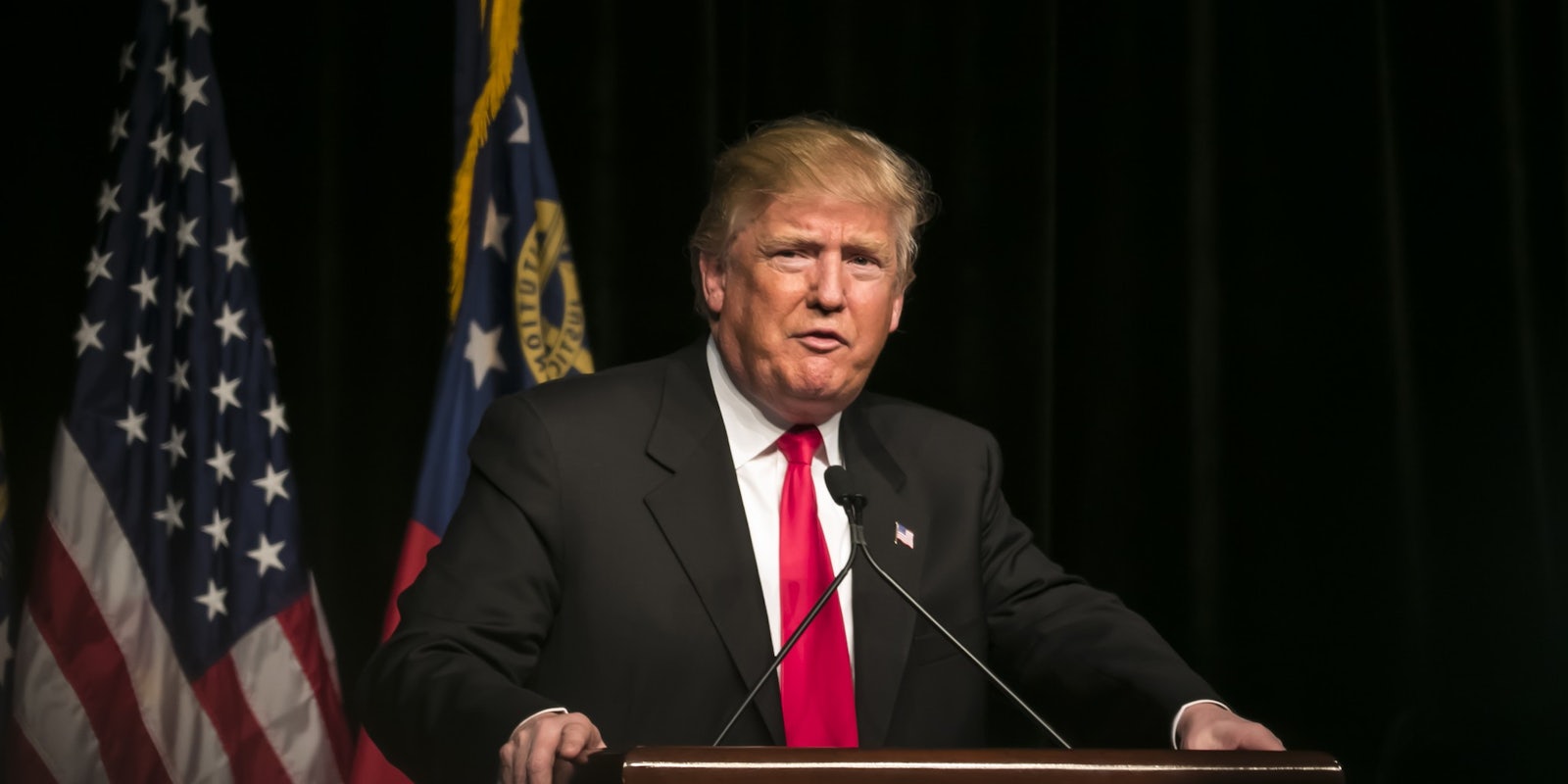There’s a reason President Donald Trump tweeted about an attempted knife attack in Paris while keeping his timeline free of any mention of a deadly attack in Canada earlier this week.
On Friday, a man reportedly shouted, “Allahu akbar”—“God is great,” in Arabic—while attempting to stab a group of soldiers who denied him entry into a mall near the Louvre art museum in Paris, a city that in November 2015 suffered one of the deadliest terrorist attacks in recent history.
One of the soldiers shot the man five times when he began to rush the group.
Within hours after reports of the attack began to surface, Trump condemned the attack in a tweet, stating that it was perpetrated by a “new radical Islamic terrorist.”
A new radical Islamic terrorist has just attacked in Louvre Museum in Paris. Tourists were locked down. France on edge again. GET SMART U.S.
— Donald J. Trump (@realDonaldTrump) February 3, 2017
Five days after the mass murder of six worshippers at a mosque in Quebec City, Canada, Trump has remained notably silent. Other world leaders, including Russian President Vladimir Putin, have publicly condemned the attack. The difference between the two acts of violence? The accused perpetrator of the Quebec City attack, which also left 19 people injured, is a 27-year-old white, French-Canadian man.
Trump regularly denounces terrorism and other acts of violence from his popular Twitter account. As the Washington Post notes, however, nearly all of Trump’s tweets condemning terrorist attacks regarded incidents carried out by Islamic extremists.
More radical Islam attacks today – it never ends! Strengthen the borders, we must be vigilant and smart. No more being politically correct.
— Donald J. Trump (@realDonaldTrump) January 16, 2016
Far more killed than anticipated in radical Islamic terror attack yesterday. Get tough and smart U.S., or we won’t have a country anymore!
— Donald J. Trump (@realDonaldTrump) January 17, 2016
Looks like yet another terrorist attack. Airplane departed from Paris. When will we get tough, smart and vigilant? Great hate and sickness!
— Donald J. Trump (@realDonaldTrump) May 19, 2016
Now, Trump has not been entirely silent about the Quebec City attack, at least privately. The president called Canadian Prime Minister Justin Trudeau following the attack and reportedly “offered to provide any assistance as planned,” according to Trudeau. White House Press Secretary Sean Spicer later confirmed the call during a press briefing, but the Trump administration remained otherwise quiet about the tragedy.
The types of terrorist acts Trump highlights may soon extend beyond his Twitter feed. Reuters reports that the Trump administration plans to rebrand the U.S. government’s “Countering Violent Extremism” program, or CVE, to focus entirely on terrorism carried out by Muslims. The current program also focuses on “domestic terrorists and homegrown violent extremists in the United States,” including terrorist acts carried out by white supremacists and right- and left-wing extremists.
The program will allegedly be rebranded “Countering Islamic Extremism” or “Countering Radical Islamic Extremism,” according to unnamed sources who spoke to Reuters.
ooooooof. pic.twitter.com/nNuW6vF0Ig
— Matt Pearce 🦅🇺🇸 (@mattdpearce) January 31, 2017
Trump’s condemnation of the attempted attack in Paris on Friday comes just hours after White House adviser Kellyanne Conway cited a fictional terrorist attack, which she dubbed the “Bowling Green massacre” during an interview on MSNBC’s Hardball, as justification for Trump’s ban on refugees and immigrants from seven predominantly Muslim countries. (Conway later said she made an “honest mistake.”)
In other words, the Trump administration appears to be playing politics—a tactic that becomes particularly consequential in matters of life and death.


